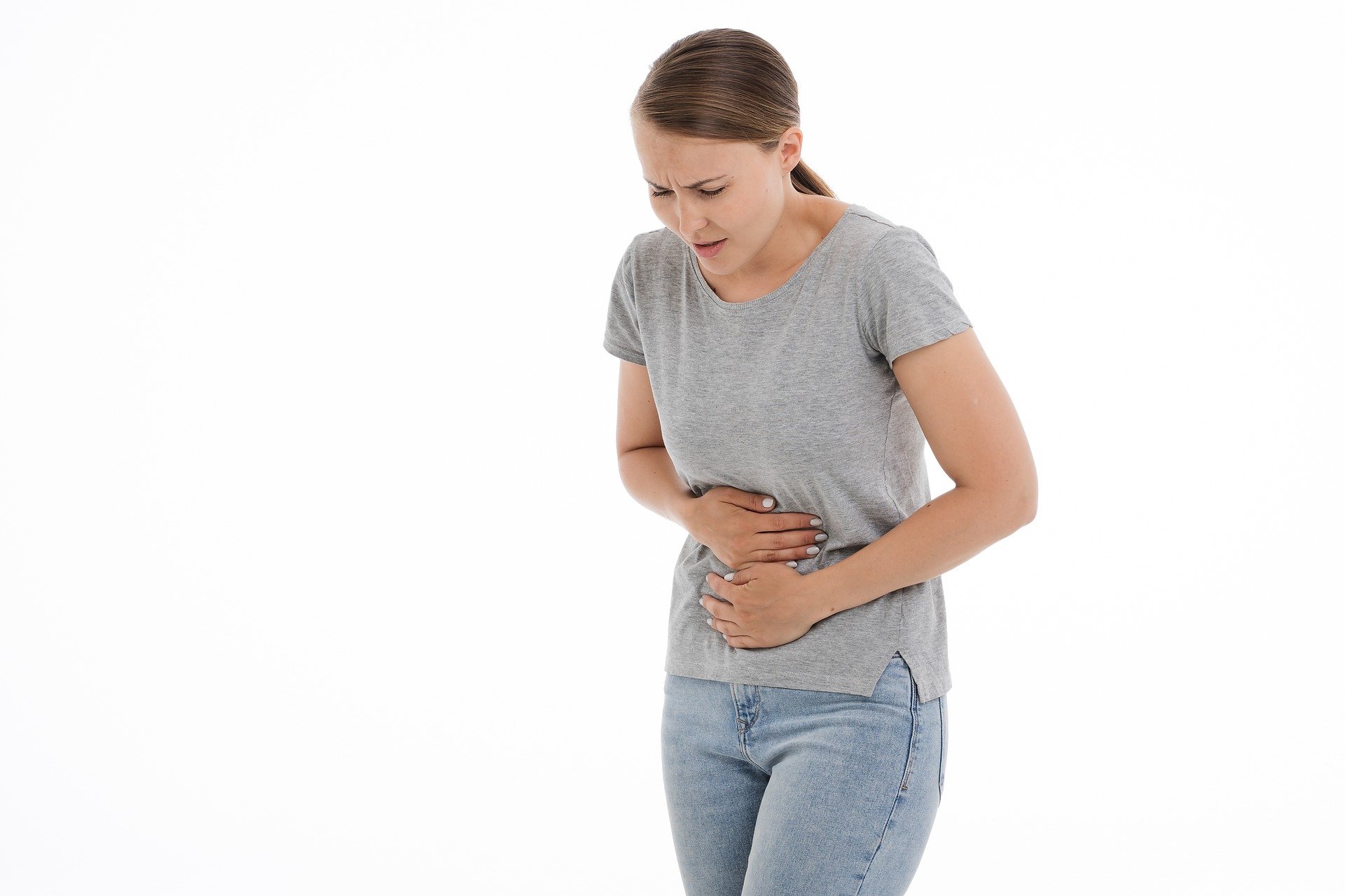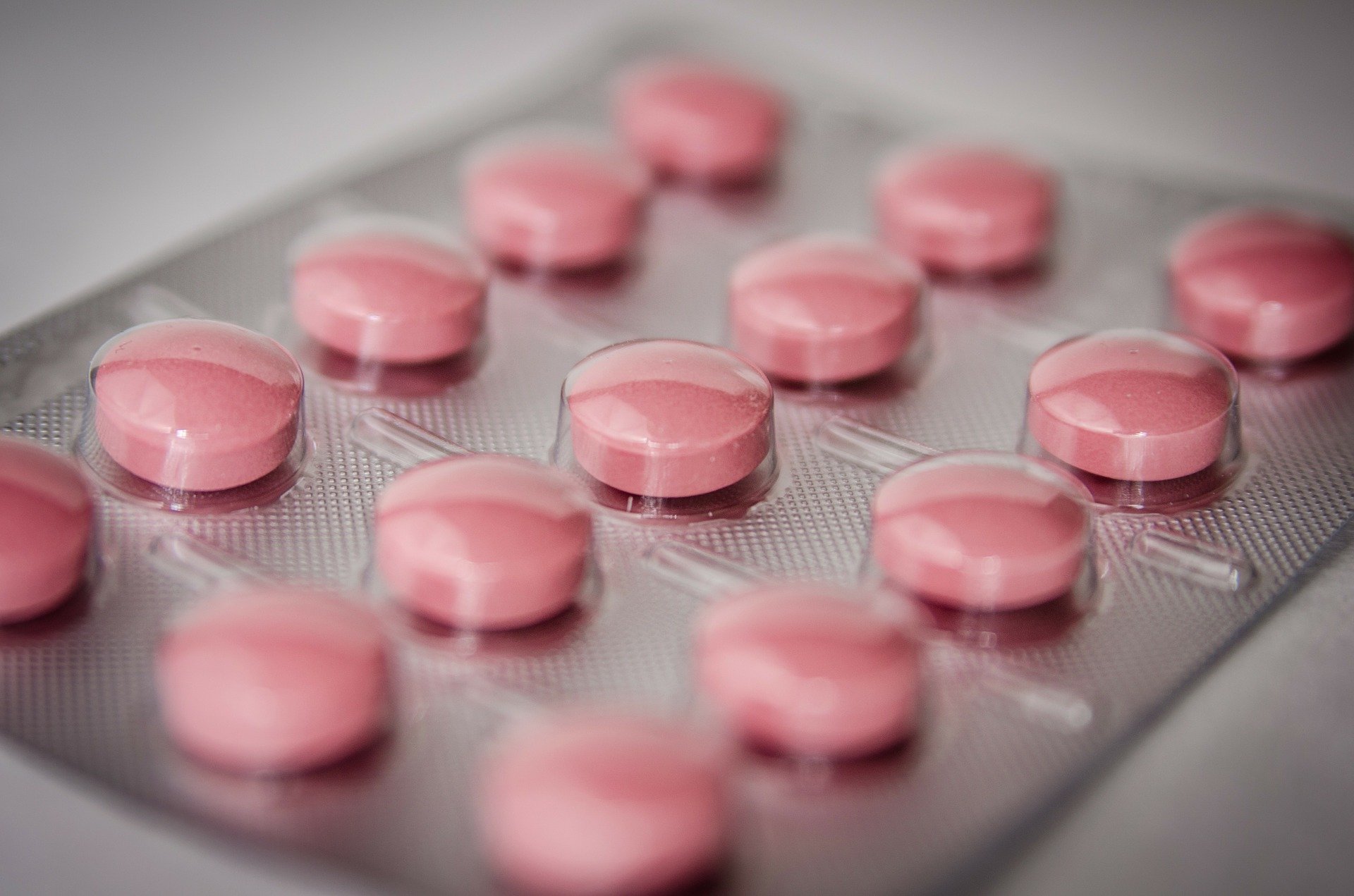Are you struggling with GI discomfort after experiencing an eating disorder? We share 7 dietitian-approved tips on how to aid in digestive health without triggering the eating disorder.

For folks who are new here, you might not know about my medical history. But in short, when I was a teenager I had a pretty serious eating disorder, and almost 20 years later, I’m still dealing with some of the consequences of eating disorders. Most notably, with my IBS and now SIBO diagnosis which I have been working through here. In general, eating disorders and digestive disorders frequently present together. One study found that of women diagnosed with an eating disorder, 50% met the criteria for IBS, and 98% met the criteria for at least one functional gut disorder. And while most evidence suggests the eating disorder often comes first, we’re definitely dealing with a complicated chicken and the egg situation.
So the real question is, did disordered eating cause your digestive issues and how are they even related? Here are a few reasons according to the research.
The ED and GI Connection
Poor Gut Motility
Severe caloric restriction literally starves the vital organs, and in the most severe cases, this is why consequences of eating disorders can result in heart failure and death. But naturally, this means the digestive organs start to atrophy (aka. weaken) which can lead to constipation, bloating, gas, and gastroparesis aka poor gut motility. Research suggests that bloating is significantly higher in individuals with EDs, as is nausea, acid reflux, and prolonged fullness after a meal. And since a lot of folks with disordered eating histories are hyper aware of their body sensations, if they experience bloating after eating something, this is interpreted as feeling “fat” or gaining weight, which then can hinder their progress towards recovery.
Dysbiosis of the Gut
So you guys always hear me say variety is the spice of life. And that’s not just for feeding yourself, but also for feeding your gut bacteria as well. One of the consequences of eating disorders is that the limited food variety can disrupt the balance of bacteria in the gut and digestive enzyme production, while potentially exacerbating or causing food intolerances. So for example, if you completely remove dairy from your diet because some influencer told you dairy is toxic, your body will cease production of the enzymes needed to digest dairy. Then when you “slip up” or you have a “cheat day” and have some dairy, you’ll likely feel really sick, which then just reinforces the fear of this food. Side note, this enzyme downregulation is reversible when we start eating normally again which ill speak to in a moment. But bottom line, the result of dysbiosis is actually more bloating, indigestion, gas, diarrhea, or chronic constipation.
Excess Fibre Consumption
So let’s get it straight that it’s not uncommon for disordered eating or eating disorders to stem from completely innocent and seemingly “normal” diet or weight loss efforts. It’s common for folks trying to “eat healthier” or “lose weight” to reduce their consumption of refined carbs or fats while increasing their consumption of low calorie high fibre foods like vegetables and fruit. Consuming a super load of FODMAP or even just fibre rich foods can cause excess gas and bloating, especially if there’s dysbiosis or bacteria overgrowth already present. Likewise, folks who are consuming a lot of high fibre snack foods like bars and drinks may find themselves bloated from the added inulin fibre. Note that Inulin is a prebiotic so it is technically healthy for the gut. But for folks with already compromised guts, it’s a pretty aggressive FODMAP that’s notorious for causing gas and bloating.
Excess Air Consumption
Again, it is very common advice in the weight loss community to fill your plate with high volume foods to help suppress your appetite and reduce calories. But consuming a lot of air-infused foods like popcorn or rice cakes, chewing a lot of gum, or drinking lots of carbonated drinks to suppress appetite can all result in swallowing a lot of air. And while air doesn’t have calories, it does add volume to your gut which again gives the feeling and look of bloat.

Other Additives in Diet Products
Sugar is one of the most demonized ingredients in the wellness or diet community, so a lot of folks who are trying to lose weight, or even just “be healthier” swap it out for sugar free. But consuming an excess of sweeteners can cause digestive distress. Other emulsifiers often found in low calorie or diet snack foods like carageenan are controversial with some early animal evidence suggesting an association with IBD and dysbiosis. I would say any of these additives are unlikely harmful IN MODERATION. But a lot of folks with eating disorders tend to eat a small handful of the same foods every day, and if some of those foods are chronically irritating the gut, it’s hard to get relief.
Reliance on Laxatives
Laxative use, whether pharmaceuticals, supplements like magnesium, or food-based like coffee, are not uncommon fixtures in the lives of folks with EDs. This may be because of impaired bowel function from undernutrition so folks need a laxative to go, or to promote weight loss, or even to suppress appetite in the case of something like coffee. But laxative abuse essentially impairs the digestive system’s normal muscle tone, resulting in a “lazy gut” incapable of normal function. As you can imagine, this becomes a vicious cycle.

The Brain-Gut Axis
This one is pivotal because we know how important the intersection of mental health and digestive health can be. Research suggests that in patients with eating disorders, specific psychological gestures like anxiety tend to predict functional gut disorders like IBS, bloating, and constipation. It’s possible that a mental health disorder is at the core here of both of these issues, and it’s also possible that one perpetuates the other. So for example, folks with eating disorders often will have anxiety around eating or certain foods they don’t deem “safe”, which can manifest as physical symptoms like bloating, constipation, and gas.
The Impact of Elimination Diets
A lot of diets used to treat digestive disorders are restrictive as fuck. I know, because when I first started my journey, I had to be really honest with myself that a full out low FODMAP elimination diet would have likely triggered me. And I know that because my eating disorder actually originated with an innocent elimination diet prescribed by a naturopathic doctor, and it spiraled into a full blown fear of food. All of these things we’ve just talked about happened to me, and they happen to so many others as well who are just trying to feel better in their day to day.
How to treat the Gut Without Triggering the ED
So what can you do to treat your functional gut disorder without further perpetuating your ED?
Tip 1 – Detox Your Social Media Feeds
Unfollow any influencer who promises to heal your gut with another diet, and work with a team who has experience with functional gut disorders and eating disorders. If a practitioner does not screen for disordered eating or ignores your history while prescribing another restrictive diet, that’s a really big red flag.

Tip 2 – Eat Regular Meals
Eat regular meals and snacks at regular intervals every day aka mechanical eating. So this is usually around 3 meals and 2-3 snacks a day and is necessary for a lot of people to regain hunger cues and regulate normal motility patterns. Intuitive eating is just not really possible for folks with active eating disorders, so keep in mind that it’s NORMAL for this to feel very unintuitive at first.
Tip 3 – Focus on Variety
Work towards the greatest variety of foods possible. Again, I acknowledge how scary this is going to feel, but it’s imperative that we begin exposure to reduce food fears, but also to help improve bacterial diversity to get those critters working in your favor.
Tip 4 – Train Your Bowels
Consider Bowel training. My colleague and registered dietitian Dasha Agoulnik who you can find here told me “just like our bicep muscles grow big when we do bicep curls, our muscles need training to go to the bathroom too.” She recommends sitting on the toilet with your legs propped up to create pressure from your thighs into the sides of your abdomen. She suggests doing this First thing in the morning for 10mins, and then again about 30 minutes after lunch and dinner for 10 mins every day for 2 months. If you poop, great. If you don’t, that’s all good too. Think of this as gym time for your bowel.
Tip 5 – Manage Stress
Focus on self-care and stress management. A stressed mind means a stressed gut, so we need to address some of the root emotions before we can change the problematic coping strategies.

Tip 6 – Consider Supplements
Consider the right supplements. Ideally, you work with a trained expert and complete any relevant tests to determine your unique needs. So for example, I did a GI 360 stool test and SIBO breath test myself to get some hard data on which supplements were best for me. The supplement world isn’t perfect and there’s a lot of BS to get through, but for folks with disordered eating tendencies, I do prefer to ADD supplements over taking food away. Especially if you’re trying to wean off of more aggressive laxatives and improve natural gut motility, a good fiber regime may be key.
Tip 7 – Manage Symptoms Without Restriction
Listen, there are going to be hard days, emotionally, and physically and ill speak more about what to expect in a moment. But try to manage the symptoms as they come. So this may a warm bath, a gentle walk, yoga poses, a hot water bottle, or a cup of peppermint tea when you feel digestive symptoms emerge. but remember, this too shall pass.
What to Expect
But speaking of symptoms, what should you expect when trying to heal your gut after or during an eating disorder?
Well, honestly, you probably will feel worse before you feel better- emotionally and physically, sadly it’s just one of the consequences of eating disorders. If you’re practicing mechanical eating, you’re probably going to feel uncomfortably full between meals and this can be triggering for you. You’ll also likely feel a few consequences of disordered eating such as bloating, gassy, puffy, endemic, and other digestive symptoms as your body starts to catch up on enzyme production, shifts fluids, and electrolytes, and your gut’s bacterial profile recalibrates. You may not be able to eat every single food without some kind of symptom, at least at first. But according to my colleagues and the literature, symptoms significantly improve virtually in every case when you start eating enough calories, enough variety, and you are able to manage the fear and stress of eating. Remember, this is a long game, but worth it for long-term food freedom.
Bottom Line
I know firsthand how uncomfortable the consequences of eating disorders can feel, but I hope that this post was helpful and that you now have some tools in your toolbox for relief when you’re struggling with your digestion and your relationship with food. As always, I also highly recommend seeking out the help of a trained dietitian or medical professional that can help you with your unique needs.






Kaitlin Wright says
This was a great read, Abbey! It seems we are talking more and more about the cross section between EDs and gut health lately (I was actually just reading a study about this in the Academy of Nutrition and Dietetics monthly publishing not long ago). The research had mentioned, as you did here, difficulty establishing which (ED or digestive issues) “causes” the other (“chicken-egg” relationship). As a person who has also struggled with an eating disorder throughout various stints of my life and continues to have a difficult time with bloating years later, I often wonder if this is lasting damage from my ED or something I was experiencing that contributed to it in the first place. Again, thanks for sharing this! So much to learn with this topic.
Abbey Sharp says
So glad it was helpful!